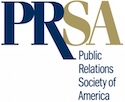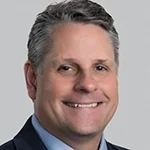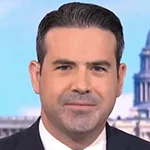 The Public Relations Society of America has issued a statement in response to a controversial measure passed this week by New York’s Joint Commission on Public Ethics advising that PR firms disclose their media outreach with the state.
The Public Relations Society of America has issued a statement in response to a controversial measure passed this week by New York’s Joint Commission on Public Ethics advising that PR firms disclose their media outreach with the state.
That measure, introduced in November by the state's ethics agency, essentially expands the definition of lobbying to include activity between PR agencies and the press, requiring PR firms that pitch editorial staff file reports with the state regarding their media outreach.
"A public relations consultant who speaks to a group to advance the client’s lobbying message would be participating in actual delivery of a message. Further, a public relations consultant who contacts a media outlet in an attempt to get it to advance the client’s message in an editorial would also be delivering a message,” the agency’s guidelines read in part. “Any attempt by a consultant to induce a third-party — whether the public or the press — to deliver the client’s lobbying message to a public official would constitute lobbying.”
The advisory opinion, which serves only as a proposed guideline, was passed Tuesday by a 10-3 vote. The New York governor's office is now slated to examine that measure.
The advised rules drew criticism from industry trade association The Public Relations Society of America, who in a Friday statement wrote that “requiring those who speak with the media or who help a client develop a messaging strategy to register as lobbyists has nothing to do with lobbying and nothing to do with corruption in government.”
“JCOPE’s opinion sets out an overbroad standard for when certain communications activities are considered to be lobbying,” PRSA's statement continued. “We suggest that JCOPE chair Daniel Horwitz and the other members of the commission consider the chilling effect it will most certainly have on free and clear lines of necessary public communication.”
“JCOPE’s new interpretation of what it considers to be lobbying will do nothing to further the public’s trust in government, is ambiguous, and could require a whole group of professionals who have no contact with lawmakers to register as lobbyists,” PRSA national chair Mark McClennan said in the statement. “Forcing communications professionals who interact with reporters and develop messaging strategies for their clients to register as lobbyists, does not support JCOPE’s mission to ‘restore public trust in government by ensuring compliance with the State's ethics and lobbying laws, regulations, and guidance.’ Instead, the poorly worded action will lead to more confusion as to what lobbying is, circumvention based on the ambiguous standards articulated, and less trust in government.”
In a January 27 statement, PR Council President and CEO Renee Wilson also weighed in on the issue, claiming that JCOPE’s recent advisory “to extend the definition of lobbying activities to include relationships between public relations professionals and the press is a gross overreach and holds potential to inhibit the public discourse on critical issue.”
The 14-member commission was created in 2011 by New York Governor Andrew Cuomo as a means of promoting political transparency and ensuring lobbying compliance within the state.
The New York Post, in a January 28 editorial, called the ruling "absurd" and "an assault on the first amendment," noting that the measure does nothing to "address any of the corruption that JCOPE has allowed to flourish since it was created to police politicians’ wrongdoing five years ago."


 Husch Blackwell Strategies has added FleishmanHillard alum Michael Slatin as a principal in its public affairs group.
Husch Blackwell Strategies has added FleishmanHillard alum Michael Slatin as a principal in its public affairs group. Rory Cooper, a veteran Republican operative and policy specialist, has joined Teneo’s Washington office as senior managing director in its strategy & communications practice.
Rory Cooper, a veteran Republican operative and policy specialist, has joined Teneo’s Washington office as senior managing director in its strategy & communications practice. Brian Fallon, who served as national press secretary for Hillary Clinton’s 2016 presidential run, is signing on next month as Vice President’s Kamala Harris’ campaign communications director.
Brian Fallon, who served as national press secretary for Hillary Clinton’s 2016 presidential run, is signing on next month as Vice President’s Kamala Harris’ campaign communications director. TikTok is nothing more than a Chinese propaganda tool that poses “a grave threat to America’s national security and, in particular, impressionable children and young adults,” say two Congressmen who want the platform registered as a foreign agent.
TikTok is nothing more than a Chinese propaganda tool that poses “a grave threat to America’s national security and, in particular, impressionable children and young adults,” say two Congressmen who want the platform registered as a foreign agent. Public Strategies Washington has added Abbie Sorrendino, a former aide to now Senate Majority Leader Chuck Schumer.
Public Strategies Washington has added Abbie Sorrendino, a former aide to now Senate Majority Leader Chuck Schumer.


 Have a comment? Send it to
Have a comment? Send it to 
No comments have been submitted for this story yet.